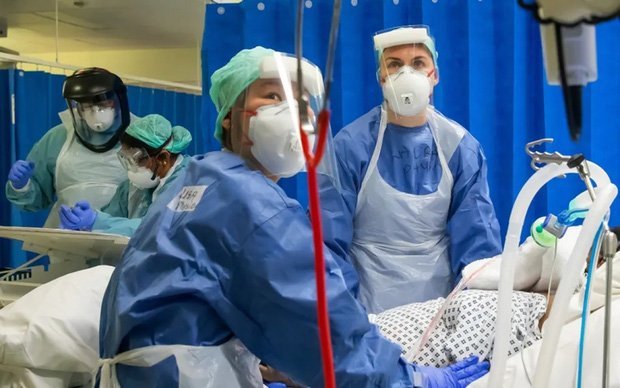A recent study found that young people who were previously healthy but had persistent Covid-19 symptoms showed signs of multiple organ damage four months after first being infected with the disease.

These findings represent a step forward for the removal of physiological problems and the development of treatments for the strange and extensive symptoms experienced by people with prolonged Covid-19.
The strange symptoms mentioned above are thought to affect more than 60,000 people in the UK. Fatigue, fog syndrome (drowsiness), difficulty breathing, and pain were the most commonly reported by patients.
On November 15, the British National Health Authority announced it would open a network of more than 40 specialized medical facilities for patients with prolonged Covid-19. In these facilities, doctors, nurses, and therapists will assess the patient’s physiological and psychological symptoms.
The Coverscan group study aimed to evaluate the long-term effects of Covid-19 on internal health in about 500 “low-risk” individuals – who were relatively young and did not have any complaints about a significant underlying disease. symptoms of Covid-19. The assessment is done through a combination of magnetic resonance imaging (MRI) scans with blood tests, measurement of physiological parameters, and using online survey questionnaires.
Preliminary data of the first 200 Covid-19 patients undergoing scanning showed that nearly 70% of them had damage to one or more internal organs, including the heart, lungs, liver, pancreas, at the time of points 4 months after they first fell ill.
Amitava Banerjee – a cardiologist and assistant professor of clinical data science at University College London, said: “The good news is that the damage is minor, but from a careful perspective there are still injuries, and up to 25% of patients suffer damage in two or more organs … We care about this because we need to know if the injury will continue to get better, or if there is a small group of patients with more severe symptoms”.
In some (but not all) cases, there was an association between the patient’s symptoms and the site of the internal damage. For example, damage to the heart or lungs is associated with dyspnea, while damage to the liver and pancreas is associated with gastrointestinal symptoms.
Preliminary data in another study of 58 patients hospitalized for Covid-19 also found lung abnormalities in 60% of patients, in the kidneys of 29% of patients, the hearts of 26% of patients, and in the liver of 10% of patients two or three months after the first infection with SARS-CoV-2 (causing Covid-19 disease). They also have tissue changes in certain areas of the brain.
Danny Altmann, professor of immunology at Imperial College London, argues that there is a need to seriously pay attention to long-term Covid-19 cases and learn about what happens at the visceral level. These new studies, he said, are the first step in a long journey to understand the mechanism of symptom and the treatment of patients with Covid-19 for a long time.
The new findings, according to Banerjee, also provide suggestions for the management of long-term Covid-19 patients, in the direction of enhancing close cooperation between physicians of different disciplines. Accordingly, sending patients to cardiology department, gastroenterology department, and neurology department in turn may not be considered effective in the context of Covid-19 pandemic continuing to spread.

